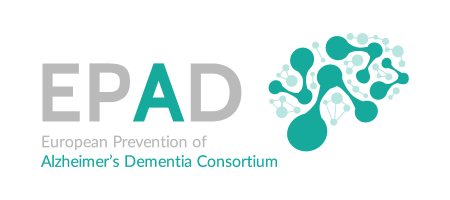“ADataViewer: exploring semantically harmonized Alzheimer’s disease cohort datasets”

Authors: Yasamin Salimi, Daniel Domingo-Fernández, Carlos Bobis-Álvarez, Martin Hofmann-Apitius & Colin Birkenbihl for the Alzheimer’s Disease Neuroimaging Initiative, the Japanese Alzheimer’s Disease Neuroimaging Initiative, for the Aging Brain: Vasculature, Ischemia, and Behavior Study, the Alzheimer’s Disease Repository Without Borders Investigators, for the European Prevention of Alzheimer’s Disease (EPAD) Consortium
Abstract:
Background: Currently, Alzheimer’s disease (AD) cohort datasets are difficult to find and lack across-cohort interoperability, and the actual content of publicly available datasets often only becomes clear to third-party researchers once data access has been granted. These aspects severely hinder the advancement of AD research through emerging data-driven approaches such as machine learning and artificial intelligence and bias current data-driven findings towards the few commonly used, well-explored AD cohorts. To achieve robust and generalizable results, validation across multiple datasets is crucial.
Methods: We accessed and systematically investigated the content of 20 major AD cohort datasets at the data level. Both, a medical professional and a data specialist, manually curated and semantically harmonized the acquired datasets. Finally, we developed a platform that displays vital information about the available datasets.
Results: Here, we present ADataViewer, an interactive platform that facilitates the exploration of 20 cohort datasets with respect to longitudinal follow-up, demographics, ethnoracial diversity, measured modalities, and statistical properties of individual variables. It allows researchers to quickly identify AD cohorts that meet user-specified requirements for discovery and validation studies regarding available variables, sample sizes, and longitudinal follow-up. Additionally, we publish the underlying variable mapping catalog that harmonizes 1196 unique variables across the 20 cohorts and paves the way for interoperable AD datasets.
Conclusions: In conclusion, ADataViewer facilitates fast, robust data-driven research by transparently displaying cohort dataset content and supporting researchers in selecting datasets that are suited for their envisioned study. The platform is available at https://adata.scai.fraunhofer.de/.
DOI: doi.org/10.1186/s13195-022-01009-4
Published online: 21 May 2022 in the journal Alzheimer’s Research & Therapy
